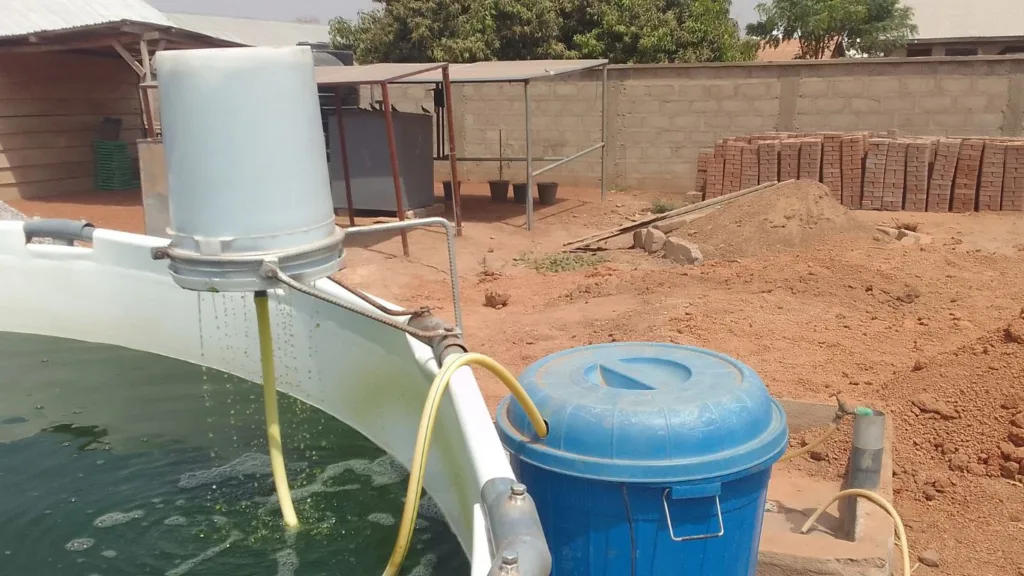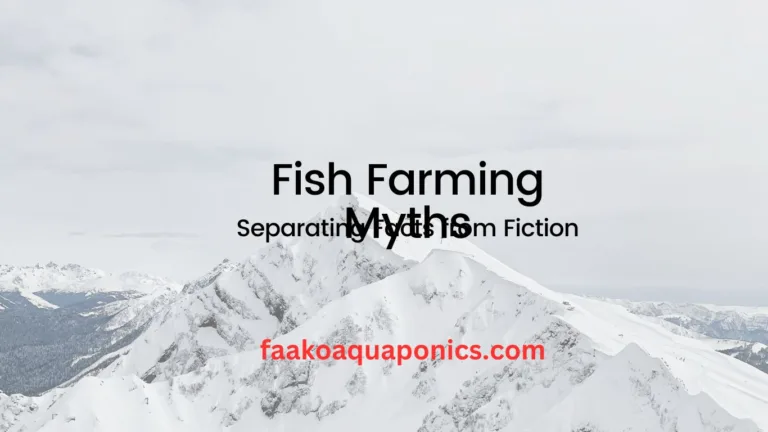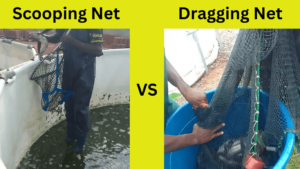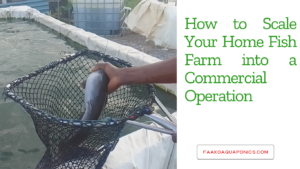Fish farming myths are misconceptions, accusations, or allegations people label against fish farming that are not necessarily true. Fish farming, or aquaculture, is the practice of breeding and rearing fish in controlled environments for consumption or stocking purposes.
As the global demand for seafood continues to grow, aquaculture has become an increasingly significant component of the world’s food production system.
However, as with many industries, misconceptions and myths can cloud public understanding of how fish farming operates. And its impacts on environments and societies.
In this article, we shall explore prevalent myths surrounding fish farming. We shall also unveil the facts, and highlight the fiction embedded in public discourse.
Myth 1: Fish Farming is Unnatural and Produces Unhealthy Fish
One of the most common fish farming myths and misconceptions is that fish farming is an unnatural process that leads to the production of unhealthy fish.
Critics often claim that farmed fish are less nutritious and are raised in overcrowded conditions that lead to disease and poor health.
Fact: The truth is aquaculture is an ancient practice, with origins dating back thousands of years. Modern fish farming employs both traditional methods and advanced technologies to simulate natural living conditions for fish.
When managed properly, farmed fish can be just as healthy and nutritious as their wild counterparts. Fish farmers work to ensure optimal health by managing stocking densities, providing balanced diets, and monitoring water quality.
Myth 2: Fish Farms Cause Major Environmental Damage
Environmental concerns are often cited when discussing the drawbacks of fish farming. Some believe that aquaculture facilities are responsible for significant pollution and destruction of natural habitats.
Fact: While some fish farming practices have led to environmental issues in the past, the aquaculture industry has made significant strides in adopting more sustainable and eco-friendly methods.
These include the use of Recirculating Aquaculture Systems (RAS) that minimize water usage and waste. Also use polyculture systems that grow multiple species together to optimize resources. And the development of alternative feeds that reduce reliance on wild fish stocks.
The reality is that responsible fish farming can lead to a reduction in fishing pressures on wild populations and contribute to environmental conservation when implemented correctly.

Myth 3: Farmed Fish Are Filled with Antibiotics and Chemicals
Another myth is that farmed fish are routinely pumped full of antibiotics and chemicals, making them unhealthy choices for consumers. They believe that fish farmers use antibiotics and other chemicals during the treatment of fish.
Fact: It’s important to note that like any form of animal husbandry, fish farming does require the use of medical treatments to maintain the health of the animals. However, the use of antibiotics and chemicals in fish farming is heavily regulated in many countries.
Farmers are increasingly adopting best management practices, such as vaccination and improved husbandry techniques. This is to reduce the need for these substances.
Additionally, many aquaculture certification programs promote environmental sustainability and public health through strict guidelines on the use of antibiotics and other inputs.
Some fish farmers even adopt healthy and natural ways of treating. These ways include the use of bitter leaves, salt, and other organic ways.
Myth 4: Fish Farming Depletes Wild Fish Stocks
One of the more paradoxical myths is the belief that fish farming contributes to the depletion of wild fish stocks. It is assumed that farmed fish must be fed with fishmeal and fish oil derived from wild fish. Which they believe depletes the wild fish stock and can lead to their extinction.
Fact: Although historically, fish diets have relied heavily on fishmeal and fish oil, the industry has moved towards more sustainable feed options. This includes the use of plant-based ingredients, the development of feeds based on insect protein, and the formulation of more efficient feeds that reduce the amount of fishmeal and fish oil needed.
Some species of farmed fish, such as tilapia or catfish, are predominantly herbivorous. They often do not require fish-based feeds at all.
The industry’s innovations in feed technology help conserve wild fish populations by reducing dependency on these marine resources.
Myth 5: Farmed Fish Aren’t as Tasty as Wild Fish
The belief that farmed fish are inferior in taste to wild fish is a subjective myth that persists in some consumer markets. As a fish farmer, I have heard several consumer complaints about this. They always argue that wild fish taste better than those we are raising on farms.
Fact: The flavor of fish can vary due to several factors including diet, environment, and species. With advancements in fish farming techniques, farmed fish are raised in conditions that aim to closely replicate their natural habitat. This result in high-quality, flavorful fish.
Taste can often be indistinguishable between wild and farmed fish, and in some cases, chefs and consumers prefer farmed. Because it gives varieties for their consistent size, availability, and quality.
What consumers must also note is that farmed fish are under control and one can vehemently tell what they eat and they are been reared till harvest. The same thing cannot be said for wild fish. Some fishermen even go to the extent of using chemicals during the harvest of wild fish.
Myth 6: Aquaculture Is Only About Fish
When discussing fish farming, people often limit their understanding to the farming of finfish species alone.
Fact: Aquaculture encompasses a diverse range of aquatic organisms, including shellfish like oysters, mussels, and shrimp, as well as seaweeds and other aquatic plants. Crayfish are all part of aquaculture.
In fact, Fish farming is just a subset of aquaculture where aquaculture is the universal set. What I mean is that fish farming is just part of aquaculture.
These forms of aquaculture can have additional environmental benefits. Some of the benefits include water filtration by bivalves and the absorption of excess nutrients by seaweeds. This can improve water quality and provide important ecosystem services.
Conclusion
Fish farming is a nuanced and complex industry that is too often misunderstood due to pervasive myths and misinformation.
By scrutinizing the facts and fiction of aquaculture, we can recognize its potential contributions to sustainable food systems and environmental stewardship. It is crucial for consumers, policymakers, and industry stakeholders to engage with the realities of fish farming. Fostering practices that are both ecologically responsible and economically viable.
As we continue to strive for a balance between meeting global seafood demand and preserving our oceans, it is conversations like these that separate fact from fiction. This also guides us toward a more sustainable future.
when you have a closer look, you will realize that all these are fish farming myths and misconceptions and therefore should be kept in a dustbin.




A fascinating discussion is worth comment. There’s no doubt that that you should write more about this subject, it might not be a taboo matter but generally people don’t discuss such issues. To the next! Many thanks!
You’re so interesting! I do not think I have read through a single thing like this before. So good to discover someone with some genuine thoughts on this issue. Really.. thanks for starting this up. This web site is one thing that is required on the internet, someone with a bit of originality.
Aw, this was a really nice post. Finding the time and actual effort to produce a good article… but what can I say… I procrastinate a lot and never seem to get nearly anything done.
This page truly has all of the information I wanted about this subject and didn’t know who to ask.
Farmacia en línea de comprimidos ranbaxy Torre del Greco medicijnen kopen zonder doktersrecept
I was pretty pleased to uncover this website. I need to to thank you for ones time due to this wonderful read!! I definitely enjoyed every part of it and i also have you saved as a favorite to see new things in your blog.
Way cool! Some very valid points! I appreciate you penning this article and the rest of the site is also very good.
You have made some really good points there. I checked on the internet for more information about the issue and found most individuals will go along with your views on this website.
After going over a number of the articles on your blog, I honestly like your technique of blogging. I saved as a favorite it to my bookmark website list and will be checking back in the near future. Please check out my website too and let me know your opinion.
You should be a part of a contest for one of the highest quality blogs on the internet. I will highly recommend this blog!
Greetings! Very useful advice within this article! It is the little changes that make the most important changes. Thanks for sharing!
This is a topic which is near to my heart… Thank you! Exactly where are your contact details though?
I like this blog very much, Its a real nice berth to read and incur information..
Awsome post and right to the point. I am not sure if this is actually the best place to ask but do you people have any
ideea where to employ some professional writers?
Thx 🙂 Escape rooms hub
Hi, after reading this amazing piece of writing
i am as well happy to share my familiarity here with friends.